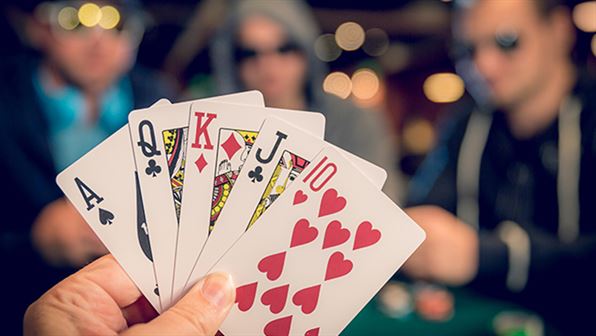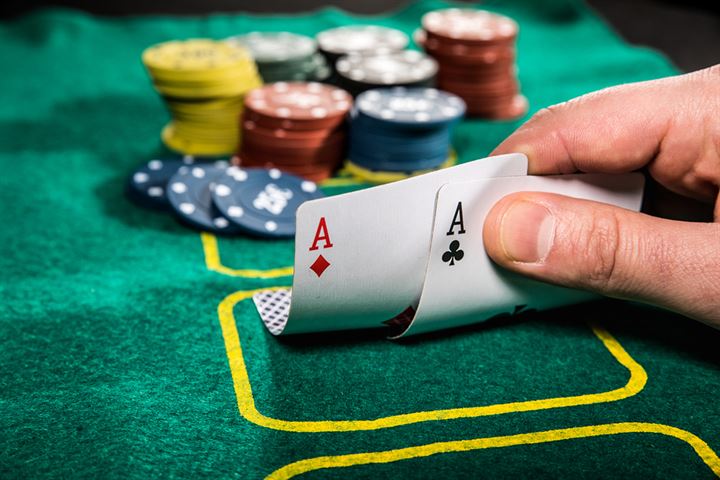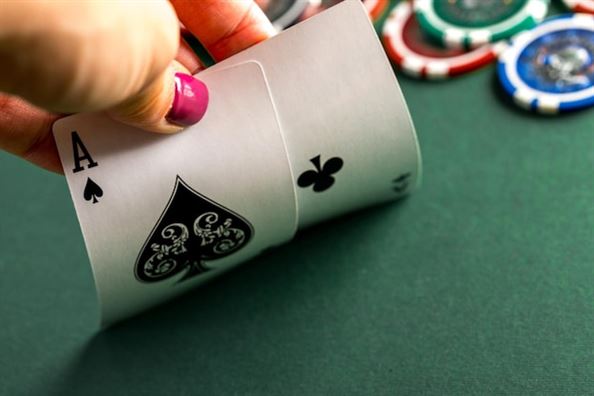Setting and sticking to gambling limits is an important aspect of responsible gambling. It helps players to manage their finances and avoid excessive losses. In this article, we will discuss some tips on how to set and stick to gambling limits.
The Importance of Setting Gambling Limits
Gambling can be a fun and exciting activity, but it can also be dangerous if not done responsibly. One of the most important aspects of responsible gambling is setting and sticking to gambling limits. This means deciding how much money you are willing to spend on gambling and sticking to that amount, regardless of whether you win or lose.
Setting gambling limits is important for several reasons. First and foremost, it helps you avoid spending more money than you can afford. Gambling can be addictive, and it’s easy to get caught up in the excitement and keep playing even when you’re losing. By setting a limit on how much you’re willing to spend, you can avoid this trap and ensure that you don’t put yourself in financial jeopardy.
Another reason why setting gambling limits is important is that it helps you stay in control of your emotions. When you’re gambling, it’s easy to get carried away by your emotions, whether it’s excitement, frustration, or disappointment. By setting a limit on how much you’re willing to spend, you can keep your emotions in check and avoid making impulsive decisions that you might regret later.
So, how do you set gambling limits? The first step is to determine how much money you can afford to lose. This means taking a hard look at your finances and figuring out how much disposable income you have each month. Once you have a clear idea of your financial situation, you can decide how much of that money you’re willing to spend on gambling.
It’s important to be realistic when setting your gambling limits. Don’t set a limit that’s so low that you won’t be able to enjoy yourself, but don’t set a limit that’s so high that you’ll be in financial trouble if you lose. A good rule of thumb is to set a limit that’s no more than 5% of your disposable income.
Once you’ve set your gambling limit, it’s important to stick to it. This means not exceeding your limit, even if you’re on a winning streak. It’s easy to get caught up in the excitement of winning and keep playing, but this is a surefire way to lose all your winnings and more. Stick to your limit and walk away when you’ve reached it.
One way to help you stick to your gambling limit is to use cash instead of credit or debit cards. When you’re using cash, you can physically see how much money you have left and how much you’ve already spent. This can help you stay on track and avoid overspending.
Another way to help you stick to your gambling limit is to set a time limit for your gambling session. Decide how long you’re going to play before you start, and stick to that time limit. This can help you avoid getting caught up in the moment and playing for longer than you intended.
In conclusion, setting and sticking to gambling limits is an important aspect of responsible gambling. It helps you avoid overspending, stay in control of your emotions, and enjoy gambling without putting yourself in financial jeopardy. To set your gambling limits, determine how much money you can afford to lose, be realistic, and stick to your limit. Use cash instead of credit or debit cards, and set a time limit for your gambling session. By following these tips, you can enjoy gambling responsibly and avoid the pitfalls of addiction and financial ruin.
How to Determine Your Personal Gambling Limits
Gambling can be a fun and exciting activity, but it can also be dangerous if not approached with caution. One of the most important things to consider when gambling is setting and sticking to your limits. This means determining how much money you are willing to spend and sticking to that amount, even if you are tempted to continue playing.
The first step in setting your gambling limits is to determine your personal financial situation. This includes taking a look at your income, expenses, and any debts you may have. It is important to be honest with yourself about your financial situation and to only gamble with money that you can afford to lose.
Once you have a clear understanding of your financial situation, you can begin to set your gambling limits. This includes determining how much money you are willing to spend on each individual gambling session, as well as how much money you are willing to lose overall.
It is important to set realistic limits that are based on your financial situation and your personal preferences. For example, if you only have $100 to spend on gambling, it may not be realistic to set a limit of $50 per session. Instead, you may want to set a limit of $10 or $20 per session to ensure that you can enjoy multiple sessions without risking all of your money at once.
Another important factor to consider when setting your gambling limits is the type of game you are playing. Some games, such as slot machines, have a higher house edge and are more likely to result in losses. Other games, such as blackjack or poker, require skill and strategy and may offer better odds of winning.
It is important to understand the odds of the game you are playing and to adjust your limits accordingly. For example, if you are playing a game with a high house edge, you may want to set a lower limit to minimize your losses. On the other hand, if you are playing a game with better odds, you may be able to set a higher limit and still have a good chance of winning.
Once you have set your gambling limits, it is important to stick to them. This means resisting the temptation to continue playing after you have reached your limit, even if you are on a winning streak. It is also important to avoid chasing losses by continuing to play after you have lost your predetermined amount.
One way to help stick to your limits is to set a time limit for each gambling session. This can help you avoid getting caught up in the excitement of the game and can help you stay focused on your goals. It is also important to take breaks and step away from the game if you feel yourself getting too caught up in the action.
In addition to setting and sticking to your gambling limits, it is also important to seek help if you feel that you may have a gambling problem. This can include talking to a trusted friend or family member, seeking professional counseling, or joining a support group for problem gamblers.
Overall, setting and sticking to your gambling limits is an important part of responsible gambling. By taking the time to determine your personal financial situation and setting realistic limits, you can enjoy the excitement of gambling without risking more than you can afford to lose.
Tips for Sticking to Your Gambling Limits
Gambling can be a fun and exciting activity, but it can also be dangerous if you don’t set and stick to your limits. It’s important to remember that gambling is a form of entertainment, not a way to make money. If you’re not careful, you can quickly lose more than you can afford. Here are some tips for setting and sticking to your gambling limits.
1. Set a Budget
The first step in setting your gambling limits is to set a budget. Determine how much money you can afford to lose without it affecting your daily life. This should be an amount that you’re comfortable with and can afford to lose. Once you’ve set your budget, stick to it. Don’t go over your budget, even if you’re on a winning streak.
2. Set a Time Limit
In addition to setting a budget, it’s important to set a time limit. Determine how much time you want to spend gambling and stick to it. This will help you avoid spending too much time and money on gambling. Once your time is up, walk away from the table or machine.
3. Don’t Chase Losses
One of the biggest mistakes that gamblers make is chasing losses. If you’ve lost money, don’t try to win it back by gambling more. This will only lead to more losses. Instead, accept your losses and move on. Remember, gambling is a form of entertainment, not a way to make money.
4. Take Breaks
It’s important to take breaks while gambling. This will help you stay focused and avoid making impulsive decisions. Take a break every hour or so to stretch your legs, get some fresh air, or grab a snack. This will help you stay alert and focused.
5. Avoid Alcohol
Drinking alcohol while gambling can impair your judgment and lead to poor decision-making. It’s best to avoid alcohol while gambling. If you do choose to drink, do so in moderation.
6. Use Self-Exclusion
If you find that you’re having trouble sticking to your gambling limits, consider using self-exclusion. This is a program that allows you to voluntarily ban yourself from a casino or online gambling site. This can help you avoid temptation and stay within your limits.
7. Seek Help
If you’re having trouble sticking to your gambling limits, seek help. There are many resources available, such as Gamblers Anonymous, that can provide support and guidance. Don’t be afraid to reach out for help if you need it.
In conclusion, setting and sticking to your gambling limits is essential for responsible gambling. Remember to set a budget and time limit, avoid chasing losses, take breaks, avoid alcohol, use self-exclusion if necessary, and seek help if you need it. By following these tips, you can enjoy gambling as a form of entertainment without putting yourself at risk.
The Benefits of Self-Exclusion Programs
Gambling can be a fun and exciting activity, but it can also be addictive and lead to financial ruin. That’s why it’s important to set and stick to gambling limits. One way to do this is through self-exclusion programs.
Self-exclusion programs are designed to help individuals who struggle with gambling addiction. These programs allow individuals to voluntarily ban themselves from entering casinos or other gambling establishments. This can be done for a set period of time or indefinitely.
The benefits of self-exclusion programs are numerous. First and foremost, they provide a way for individuals to take control of their gambling habits. By voluntarily banning themselves from gambling establishments, individuals can avoid the temptation to gamble and reduce the risk of developing a gambling addiction.
Self-exclusion programs also provide a support system for individuals who struggle with gambling addiction. Many programs offer counseling and other resources to help individuals overcome their addiction. This can be especially helpful for those who may not have access to other forms of support.
In addition, self-exclusion programs can help individuals avoid the financial consequences of gambling addiction. By setting and sticking to gambling limits, individuals can avoid the risk of losing large amounts of money. This can help them maintain financial stability and avoid the negative consequences of debt and bankruptcy.
Of course, self-exclusion programs are not a cure-all for gambling addiction. They are just one tool in a larger toolkit for managing gambling habits. Individuals who struggle with gambling addiction should also seek professional help, such as counseling or therapy.
It’s also important to note that self-exclusion programs are not foolproof. Individuals who are determined to gamble may find ways to do so, even if they are banned from gambling establishments. That’s why it’s important to have a support system in place and to be vigilant about managing gambling habits.
Setting and sticking to gambling limits is an important part of responsible gambling. It’s important to set a budget for gambling and to stick to it, even if you’re on a winning streak. It’s also important to take breaks and to avoid chasing losses.
One way to set and stick to gambling limits is to use a pre-paid card or other form of payment that has a set limit. This can help individuals avoid overspending and can provide a clear picture of how much money they have left to gamble with.
Another way to set and stick to gambling limits is to set a time limit for gambling. This can help individuals avoid getting caught up in the excitement of gambling and can help them maintain a healthy balance between gambling and other activities.
In conclusion, self-exclusion programs are an important tool for managing gambling addiction. They provide a way for individuals to take control of their gambling habits and avoid the negative consequences of addiction. However, they are just one tool in a larger toolkit for managing gambling habits. It’s important to seek professional help and to be vigilant about managing gambling habits. By setting and sticking to gambling limits, individuals can enjoy the fun and excitement of gambling without risking their financial stability or their well-being.
How to Seek Help for Gambling Addiction
First, determine how much money you can afford to lose. This should be an amount that won’t affect your daily life or cause financial stress. Once you’ve set this limit, stick to it. Don’t go over it, even if you’re on a winning streak. Remember, the odds are always in the house’s favor.
Next, set a time limit for your gambling session. This will help you avoid getting caught up in the moment and spending more time and money than you intended. Stick to your time limit, even if you’re having fun and want to keep playing.
Another way to set and stick to gambling limits is to use cash instead of credit or debit cards. When you have a set amount of cash, you can physically see how much you have left and avoid overspending. Leave your credit and debit cards at home to avoid the temptation to spend more than you can afford.
It’s also important to take breaks during your gambling session. This will give you time to reflect on how much you’ve spent and whether you’re sticking to your limits. Use this time to walk around, get some fresh air, and clear your head.
If you find that you’re having trouble sticking to your gambling limits, it may be time to seek help for gambling addiction. Gambling addiction is a serious problem that can lead to financial ruin, relationship problems, and even mental health issues.
There are many resources available for those struggling with gambling addiction. One option is to attend Gamblers Anonymous meetings. These meetings provide a supportive environment where you can share your experiences and receive guidance from others who have been through similar struggles.
Another option is to seek professional help from a therapist or counselor. They can help you identify the root causes of your gambling addiction and develop strategies for overcoming it. They can also provide support and guidance as you work towards recovery.
If you’re not ready to seek professional help, there are still things you can do to manage your gambling addiction. One option is to self-exclude from casinos and online gambling sites. This means that you voluntarily ban yourself from these establishments for a set period of time.
You can also install software on your computer or mobile device that blocks access to gambling sites. This can help you avoid the temptation to gamble when you’re feeling vulnerable.
In conclusion, setting and sticking to gambling limits is essential for responsible gambling. It’s important to determine how much money and time you can afford to spend on gambling and stick to those limits. If you find that you’re struggling with gambling addiction, there are many resources available to help you overcome it. Don’t be afraid to seek help and take control of your gambling habits.
The Role of Responsible Gambling Organizations in Setting Limits
One of the most important roles of responsible gambling organizations is to help players set limits on their gambling. This can include setting a budget for how much money they are willing to spend on gambling, as well as setting time limits for how long they will gamble. By setting these limits, players can avoid overspending and ensure that they are not spending too much time gambling.
Responsible gambling organizations also provide resources to help players stick to their limits. This can include self-exclusion programs, which allow players to voluntarily ban themselves from gambling establishments or online gambling sites. Self-exclusion programs can be a powerful tool for players who are struggling with problem gambling, as they can help them avoid the temptation to gamble and stay on track with their limits.
Another important role of responsible gambling organizations is to provide support and resources for players who are struggling with problem gambling. This can include counseling services, support groups, and other resources to help players overcome their addiction and get back on track. By providing these resources, responsible gambling organizations can help players avoid the negative consequences of problem gambling and get the help they need to overcome their addiction.
In addition to providing resources and support for players, responsible gambling organizations also work closely with gambling establishments and online gambling sites to promote responsible gambling practices. This can include providing training for staff on how to identify and assist players who may be struggling with problem gambling, as well as implementing policies and procedures to help prevent problem gambling.
Overall, responsible gambling organizations play a critical role in helping players set and stick to gambling limits. By providing resources, support, and education, these organizations can help players avoid the negative consequences of problem gambling and enjoy gambling in a safe and responsible way. If you or someone you know is struggling with problem gambling, don’t hesitate to reach out to a responsible gambling organization for help and support.
Setting and sticking to gambling limits is crucial for responsible gambling. It helps to prevent excessive gambling and financial losses. To set limits, players should determine their budget, time, and loss limits before starting to gamble. They should also avoid chasing losses and taking unnecessary risks. Sticking to limits requires discipline and self-control, but it can help players enjoy gambling in a safe and sustainable way. It is important to remember that gambling should be a form of entertainment, not a source of income or a way to solve financial problems.




